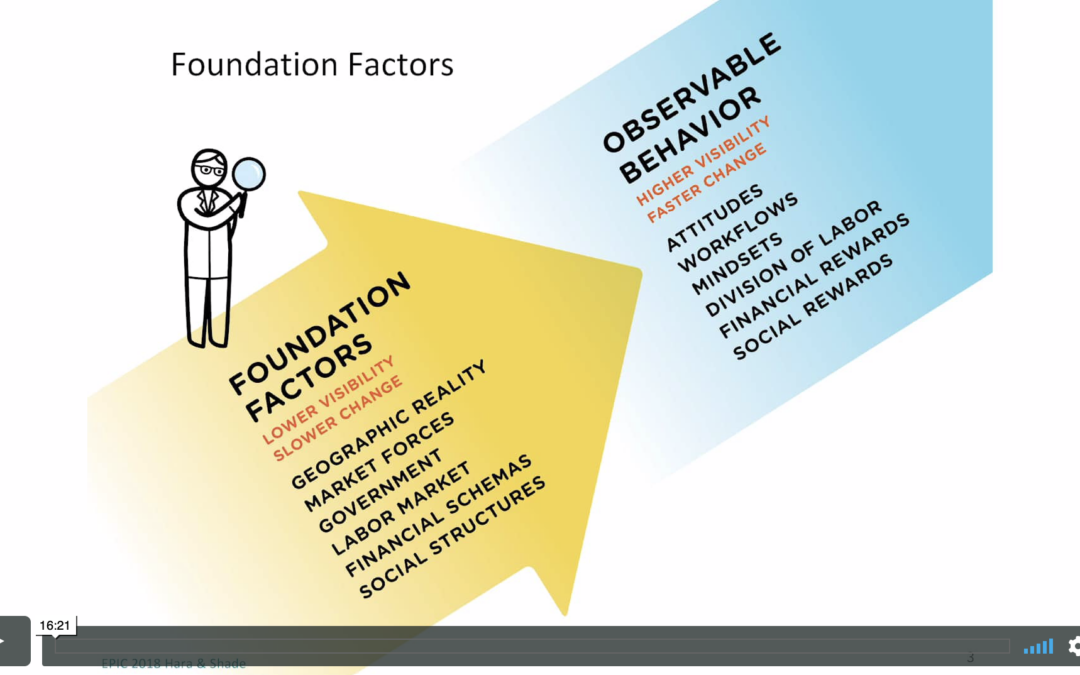This case study by a pan-African UX research and design agency offers key insights for companies attempting to...


This case study by a pan-African UX research and design agency offers key insights for companies attempting to...

In international business ethnography, clients and subjects don’t share the same background. Without an understanding of the underlying factors affecting the subject’s behaviors, data can lead to false home-market based assumptions about cause and effect. Where do we as researchers look to detect...

This paper focuses on a study of Tesco Plc conducted in 2011, in which we trained a multicultural team of nine Asian managers to become in-house ethnographers of Tesco UK for a 3-month period studying 52 stores in the UK with dual objectives of helping Tesco (1) to understand and evaluate the core...

This paper reports on the efforts of a global IT services company to transform the way it delivers IT outsourcing services. The change initiative was designed to bring about a radical transformation in the how work gets done across the enterprise with the expected benefit of delivering greater...

With more than five billion people, large corporations have expressed non-trivial interest in “emerging markets” as potential future sources of revenue. We in this community of ethnographic praxis, are privileged to move with some ease between corporate board rooms and people’s living rooms around...

Sustainability & Ethnography in Business Series, Mike Youngblood, Editor Sustainability initiatives—social, economic or environmental—can have universal value for stakeholders. But how sustainability is defined, and what successful solutions might look like, can vary dramatically among...

How do users incorporate mobile money into their existing practices and adapt it to their needs? The answers can be surprising. Simultaneously a commodity, a store of value, and a social good, mobile money combines a large array of applications within the one platform. This is why mobile money has...

Critical corporate ethnography does not stop at the field or our reports but extends into our day-to-day work in the office. Using the example of internal research conducted for next generation internet Café (iCafe) product development in the PRC, we will argue that corporate ethnographers must go...

This paper is based on fieldwork in Pakistan and Malawi and focuses on the importance of communicating contextualizing stories to HQ and business developer teams. By means of an explorative approach—even in highly structured commercial projects with formalized needs—we’ve uncovered findings and...

For over five decades in the U.S., “Cuba” has been wielded foremost as a political term, serving only secondarily as a geographic or cultural designation. The archipelago—just ninety miles from U.S. shores and rich in arts, sports, religion, medicine, agriculture, and history—has been largely off...